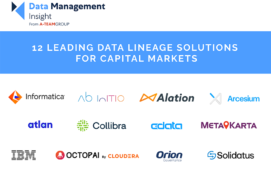We’re certainly hearing more and more about outsourcing utilities for managing reference data coming onto the market. Just a quick flick through this issue will show SunGard planning their new Fame-based rMDS, and Accenture set to launch their MRDS service based on Asset Control’s platform. Capco also recently outlined its MDS plans following the acquisition of Iverson (so many MDS-related acronyms to remember!). IBM earlier in the year bought out a reference data management platform (actually based on underlying technology from Asset Control) from Dresdner and in the process took over Dresdner’s data management on an outsourced basis. And rumour has it that Deloitte & Touche are looking to get in on the act.
So what does it mean? As with most industries, the consolidation and partnerships that are leading to the outsourcing services being launched are a sign of development. Suppliers are becoming clearer about the real client needs, and acquisitions help to fill in the gaps and in many cases provide scale to meet those needs. The spate of recent acquisitions and partnerships seem to be signalling a beginning of maturity for the reference data industry. Whether looking for outsourcing or onsite solutions for data management, the mission-critical nature, and the financial, regulatory and reputational repercussions of any failure of this function, mean that financial institutions need to be sure they are engaging with a solid provider with sound financials. Scale and support is all-important. We’ve heard of a couple of instances of smaller service providers getting through the selection process only to be knocked out at the due diligence stage when they could not provide reassuring enough financials. The challenge for smaller outfits is how to either distinguish their offering as a true niche service that can complement other, larger services or how to align themselves with bigger players in the hopes of getting a partnership deal or even being bought. It is only the large vendors with clout that can get away with providing outsourced services. It makes sense that institutions should focus on their true business strengths and leave data management to vendors whose core business is exactly that. And there is a clear and logical argument for the cost savings, quality control, expertise and many other benefits, that can be gained through using a third-party offering a shared infrastructure. But the question is, will the user firms really go for it? Despite the logical arguments, users in this space have never been quick to sign up for full outsourcing deals. The risk of reliance on a third-party for such a crucial service, the loss of control over the service, and other factors, make it a tough decision for any management team. There’s usually a level of client liquidity on the vendor’s side required before most firms will consider handing over such a crucial function to them; kind of a chicken and egg situation. Another issue is how to take the shared infrastructure and tailor it to each individual client’s environment, workflow processes and downstream applications. This is probably why we are seeing the likes of consulting firm like Accenture becoming involved and companies like SunGard ramping up their consultancy services group. There’s lots of money to be made in consulting on a service that a bank has already committed to.
Subscribe to our newsletter




